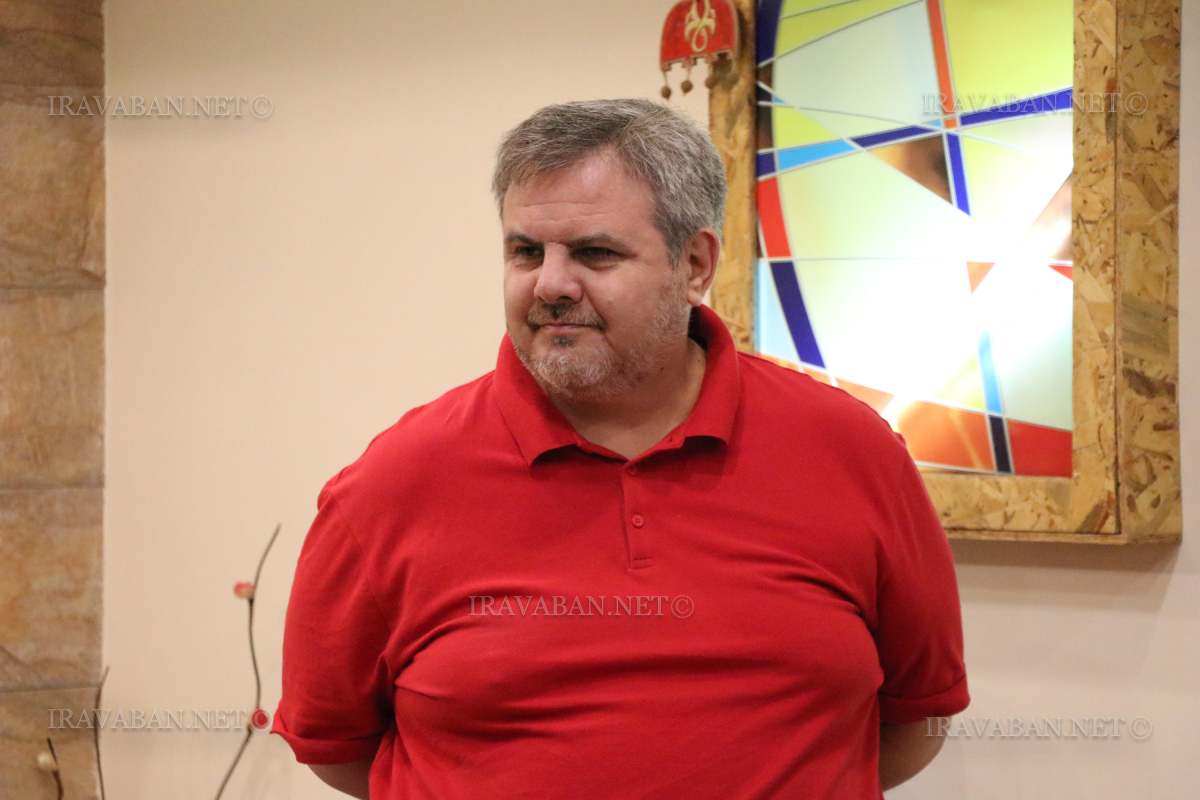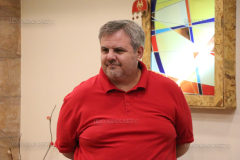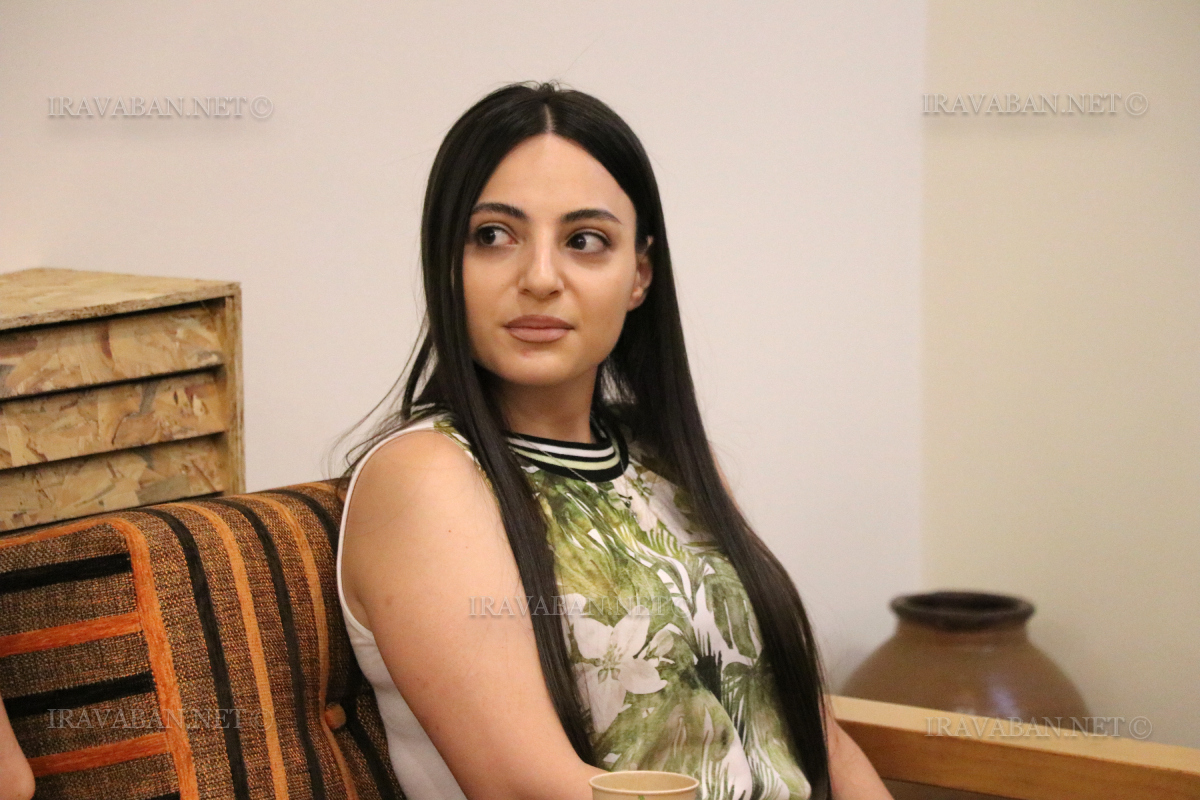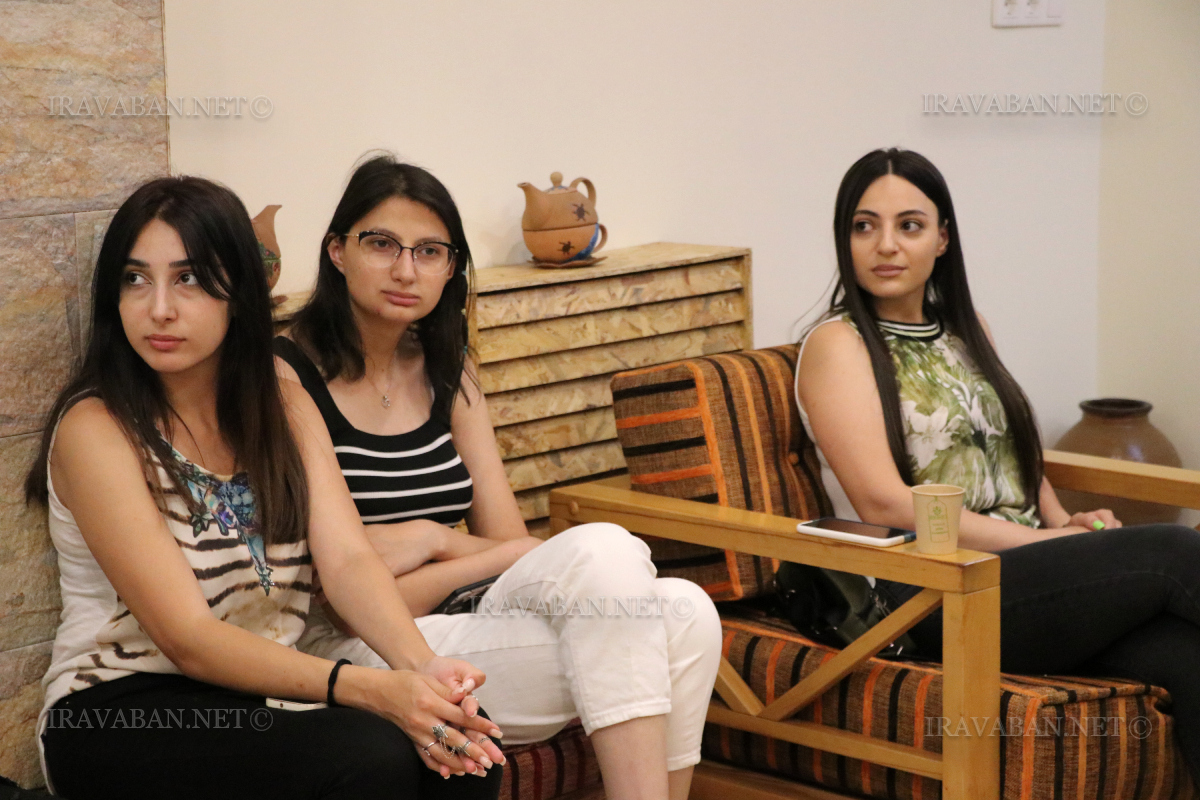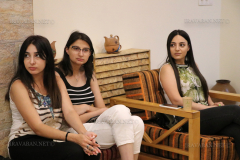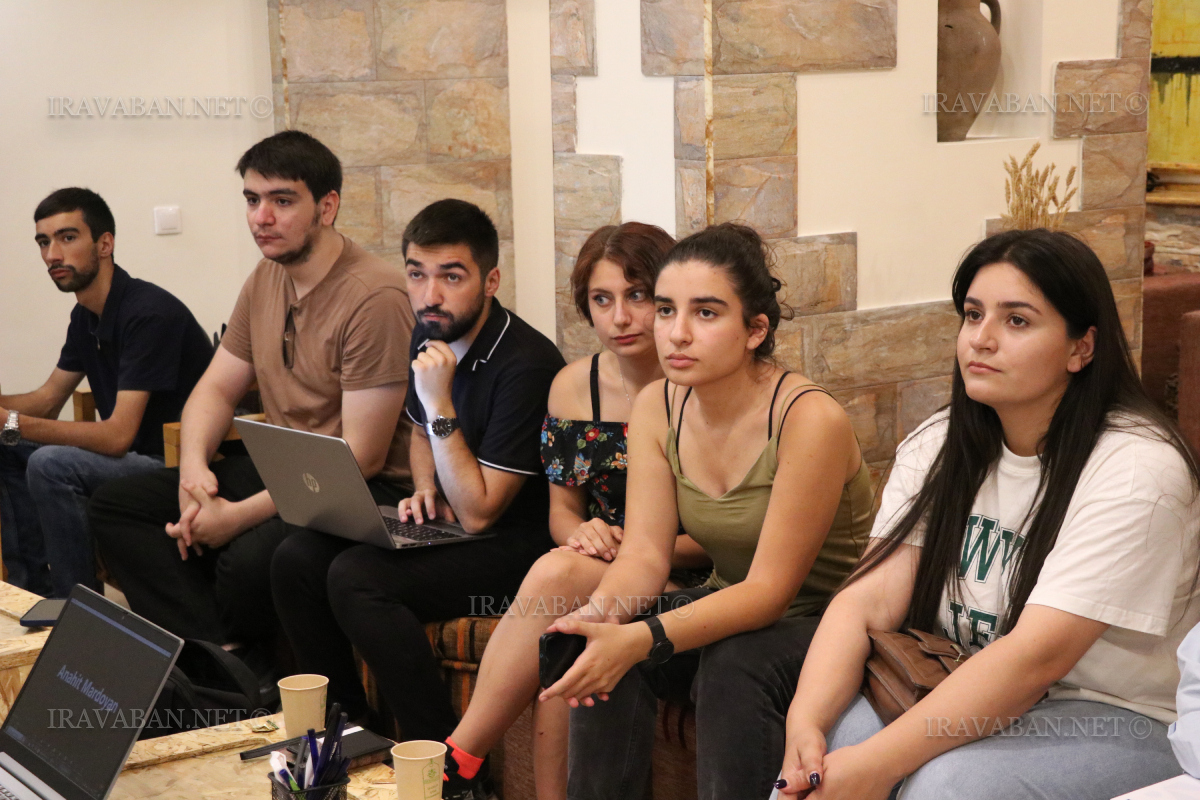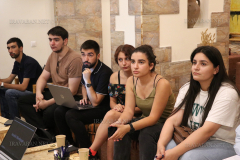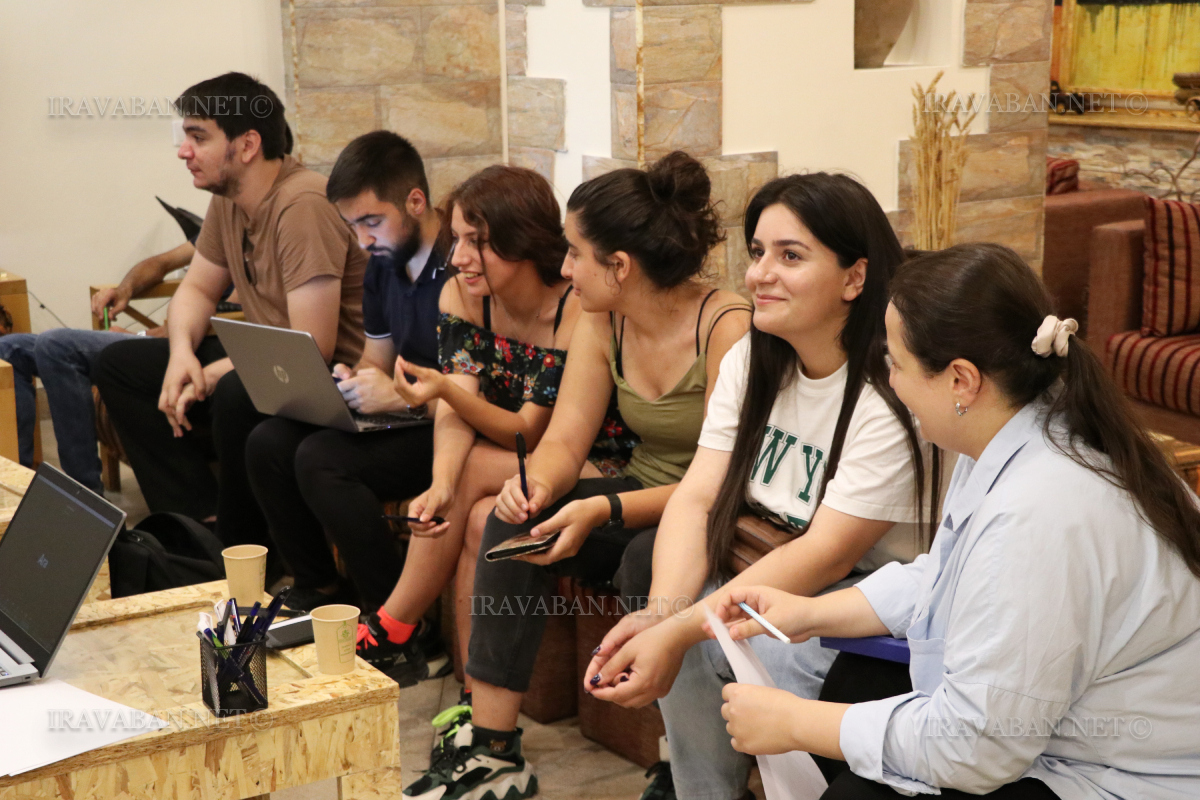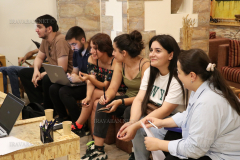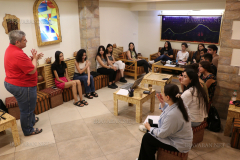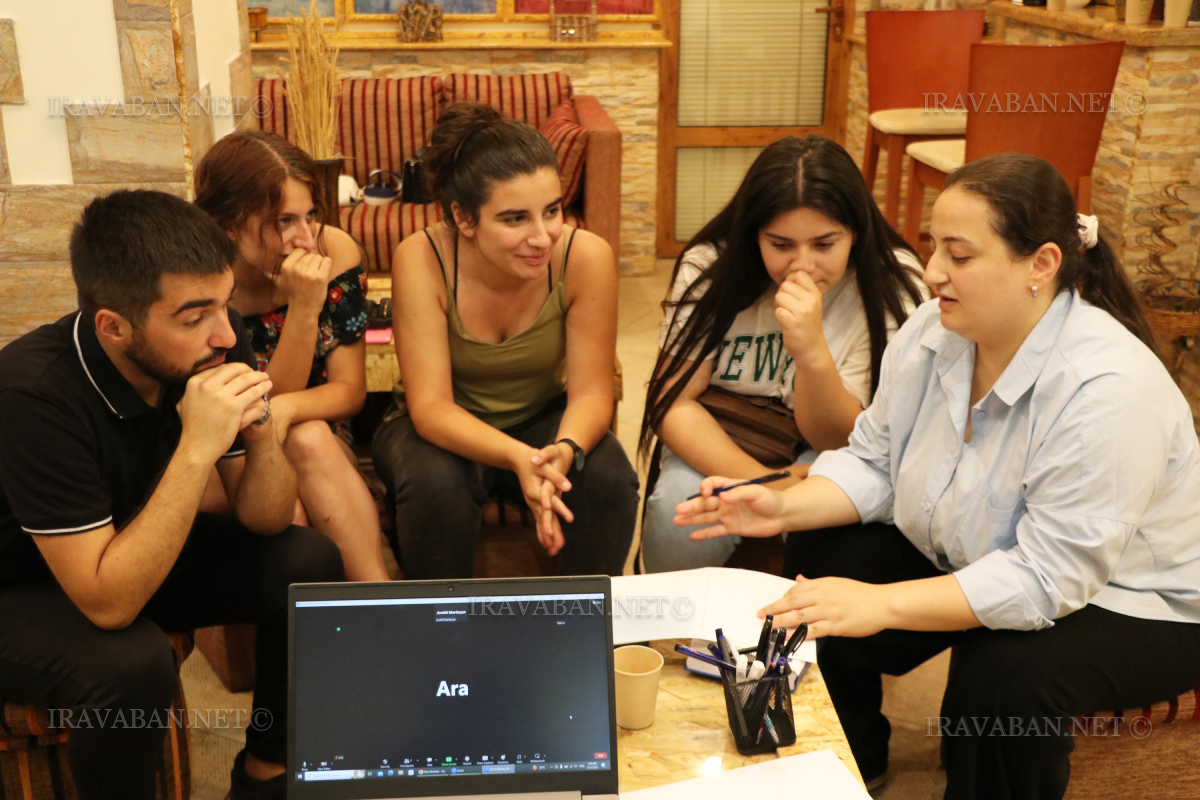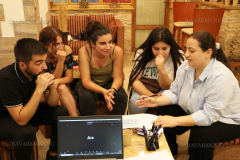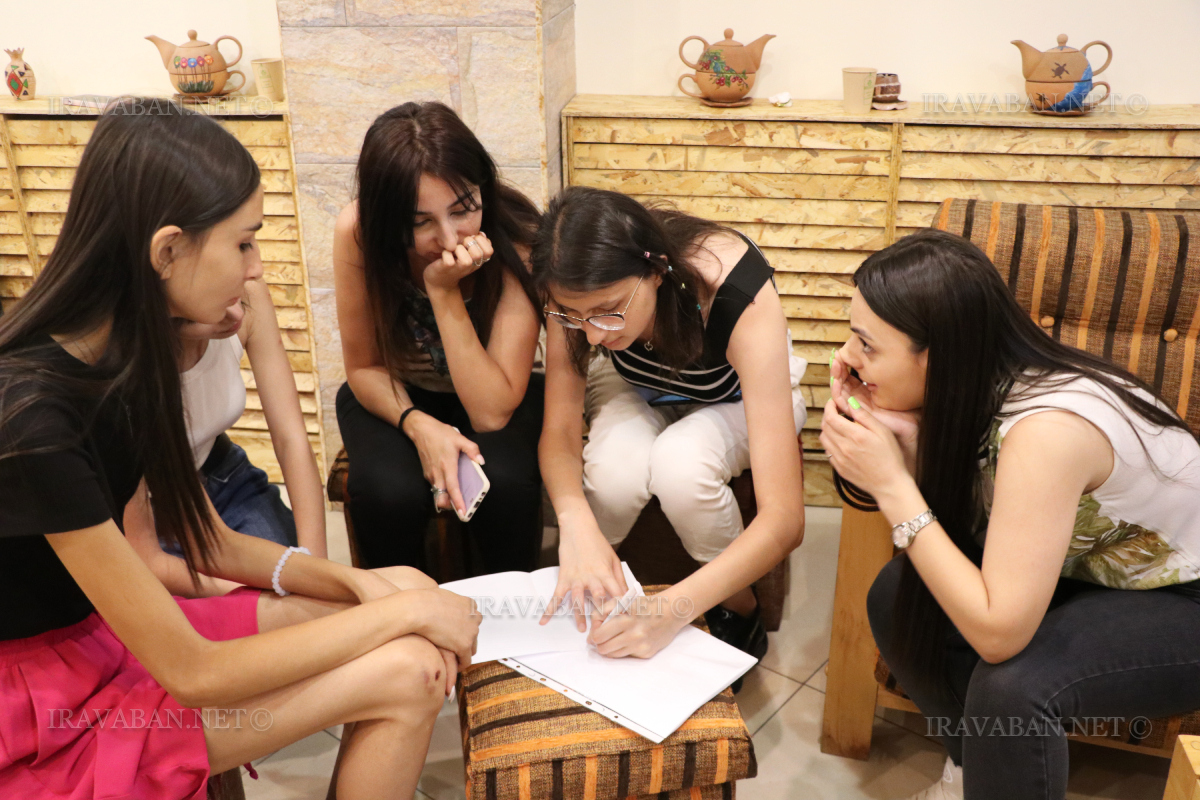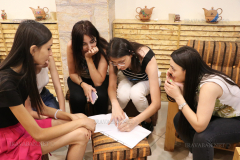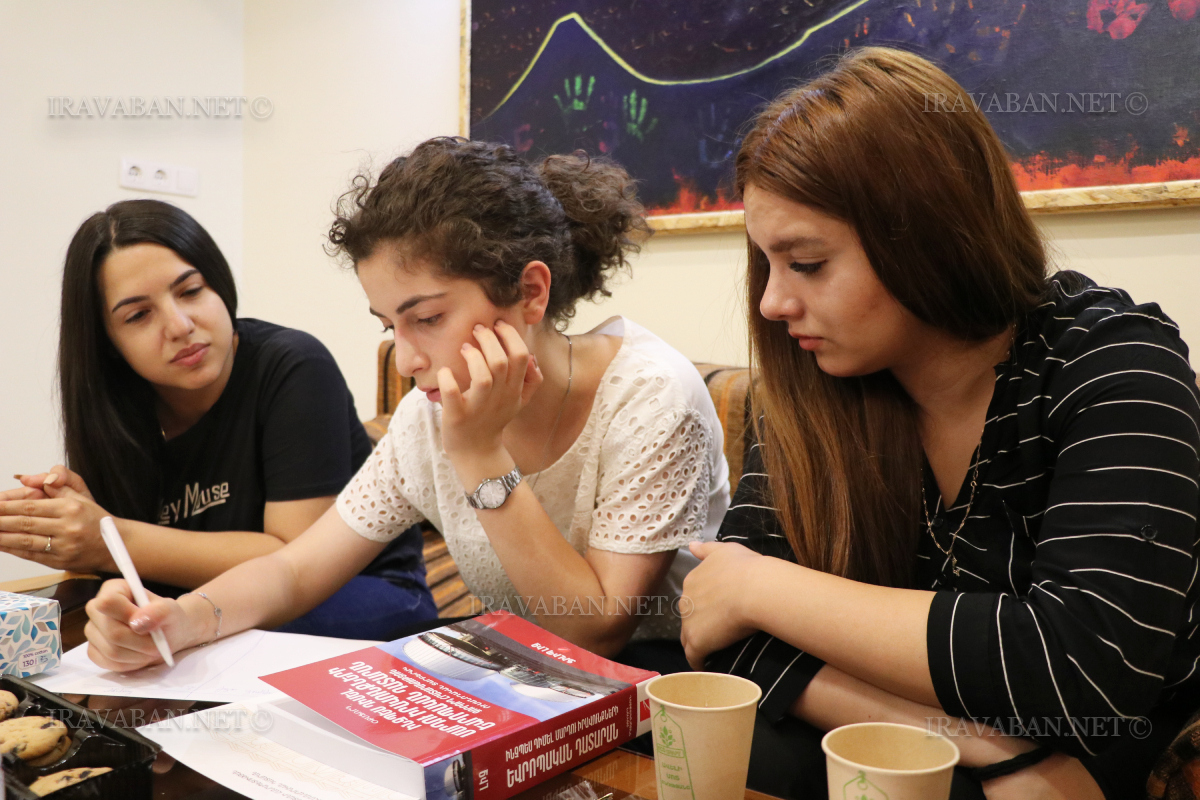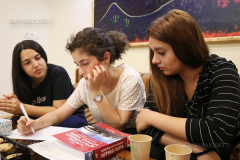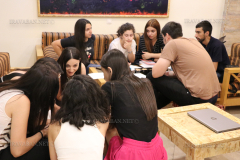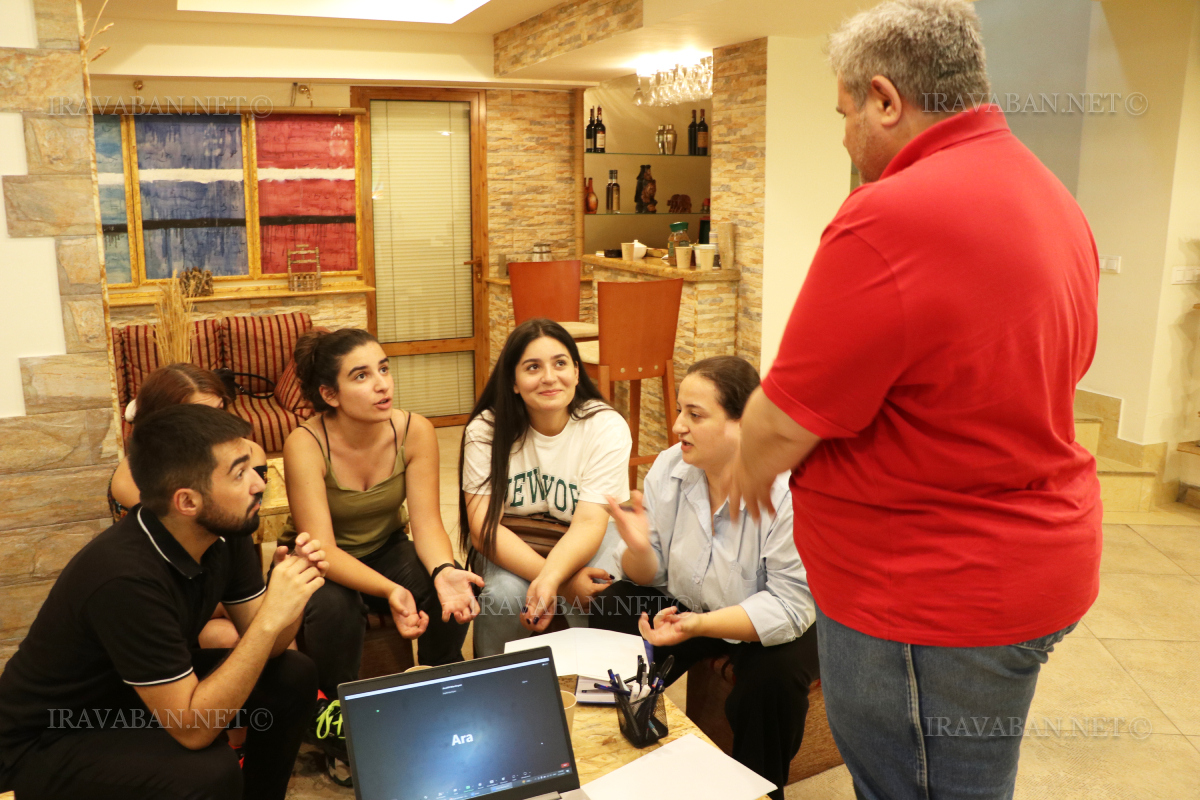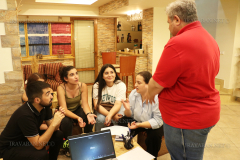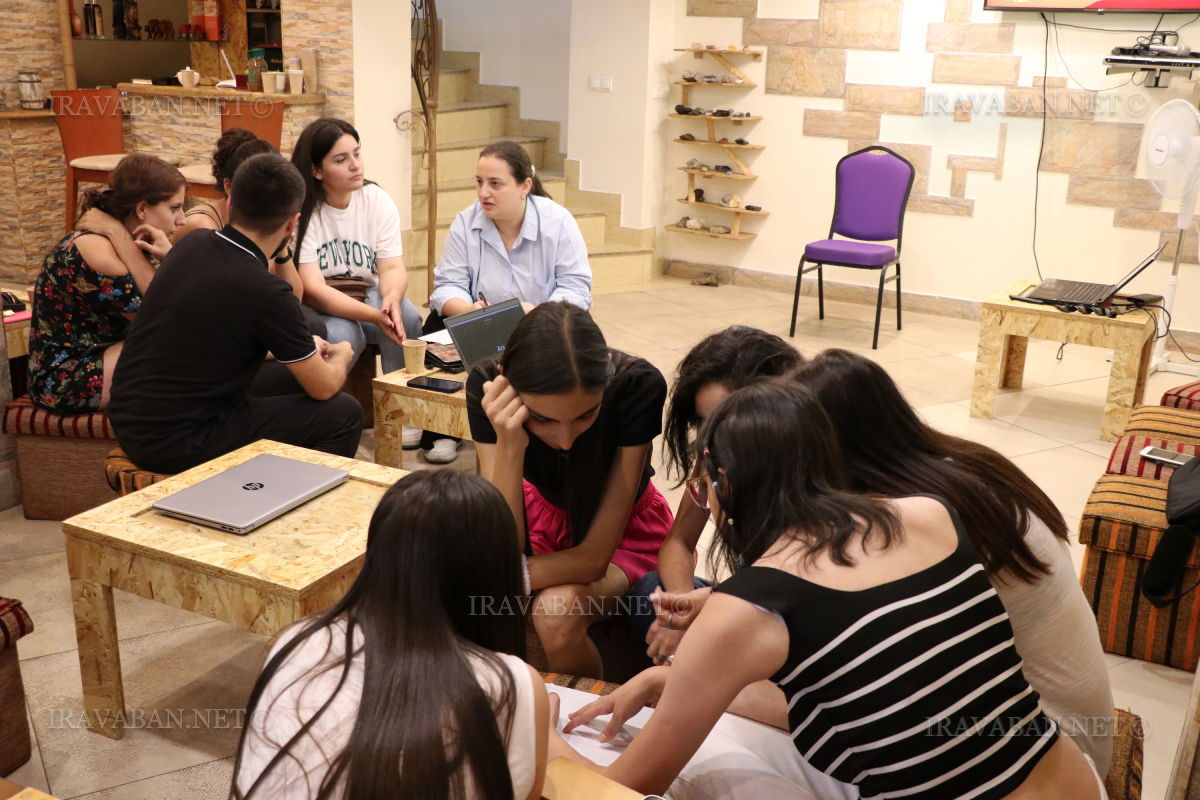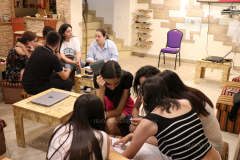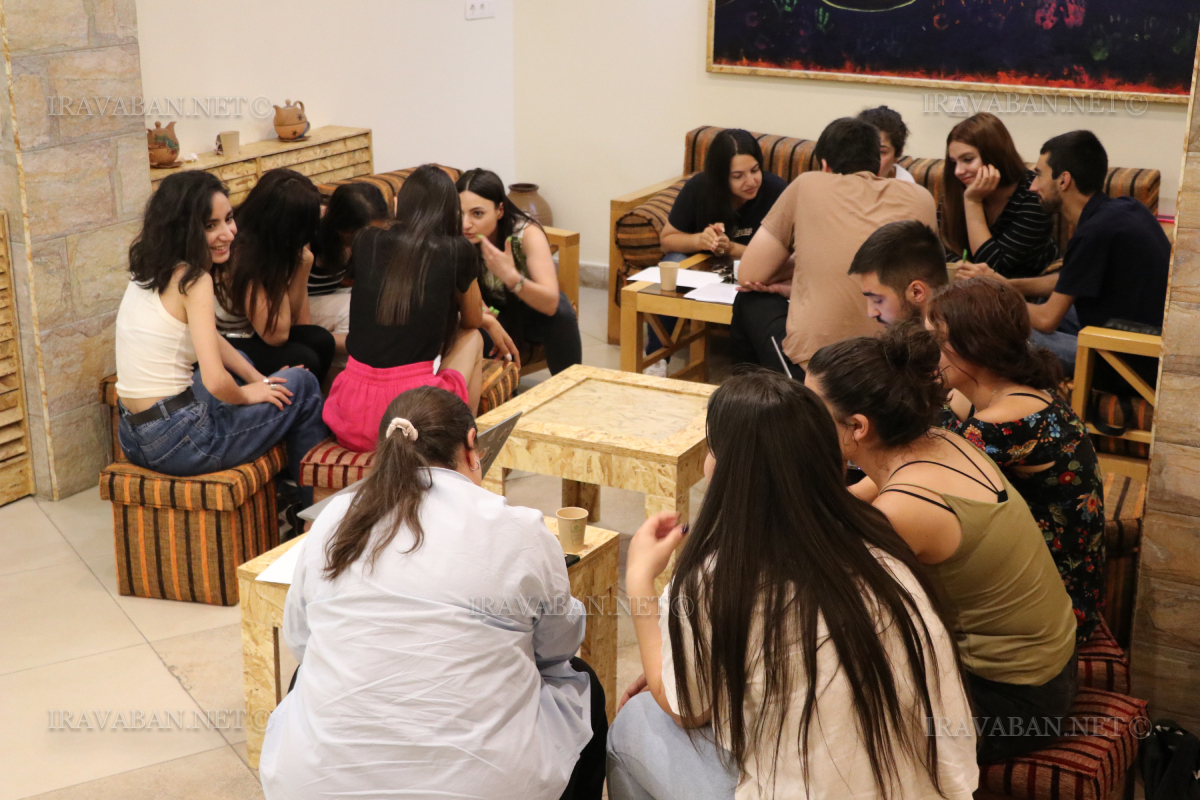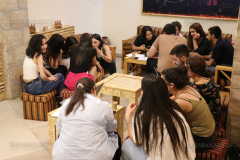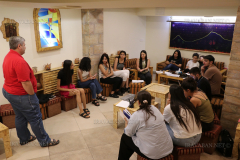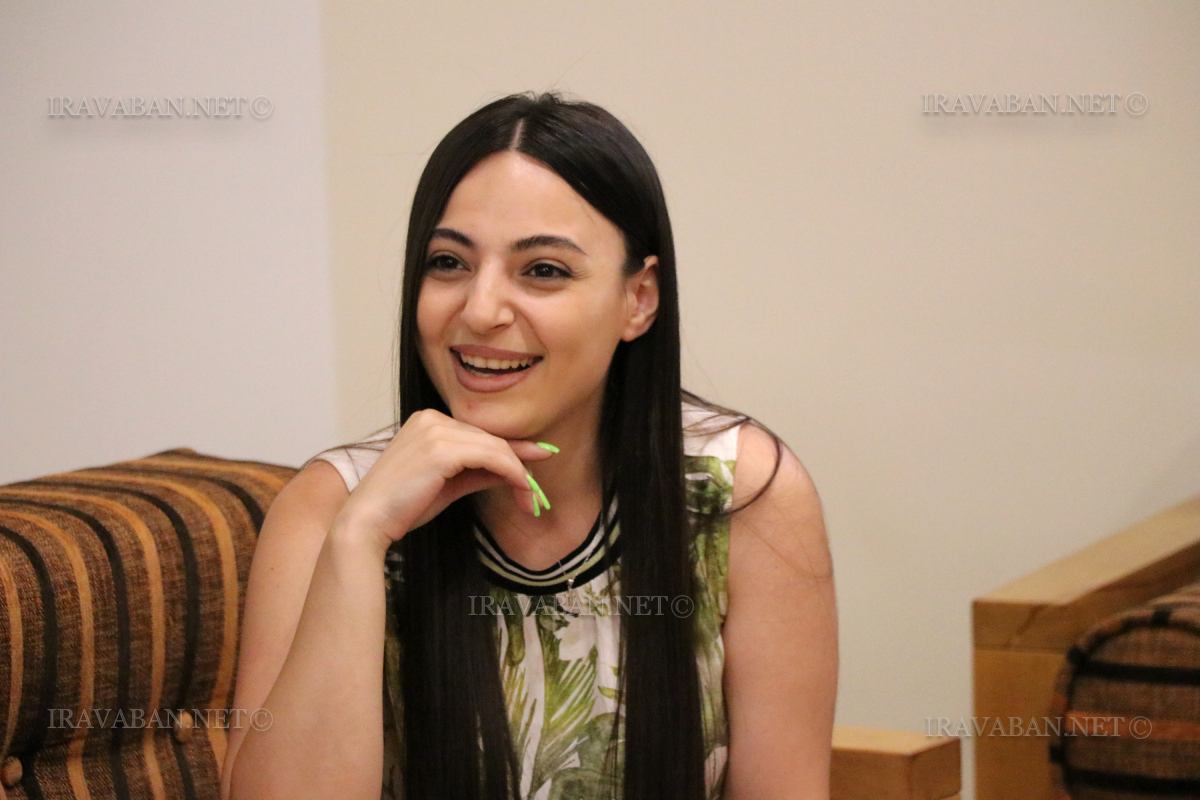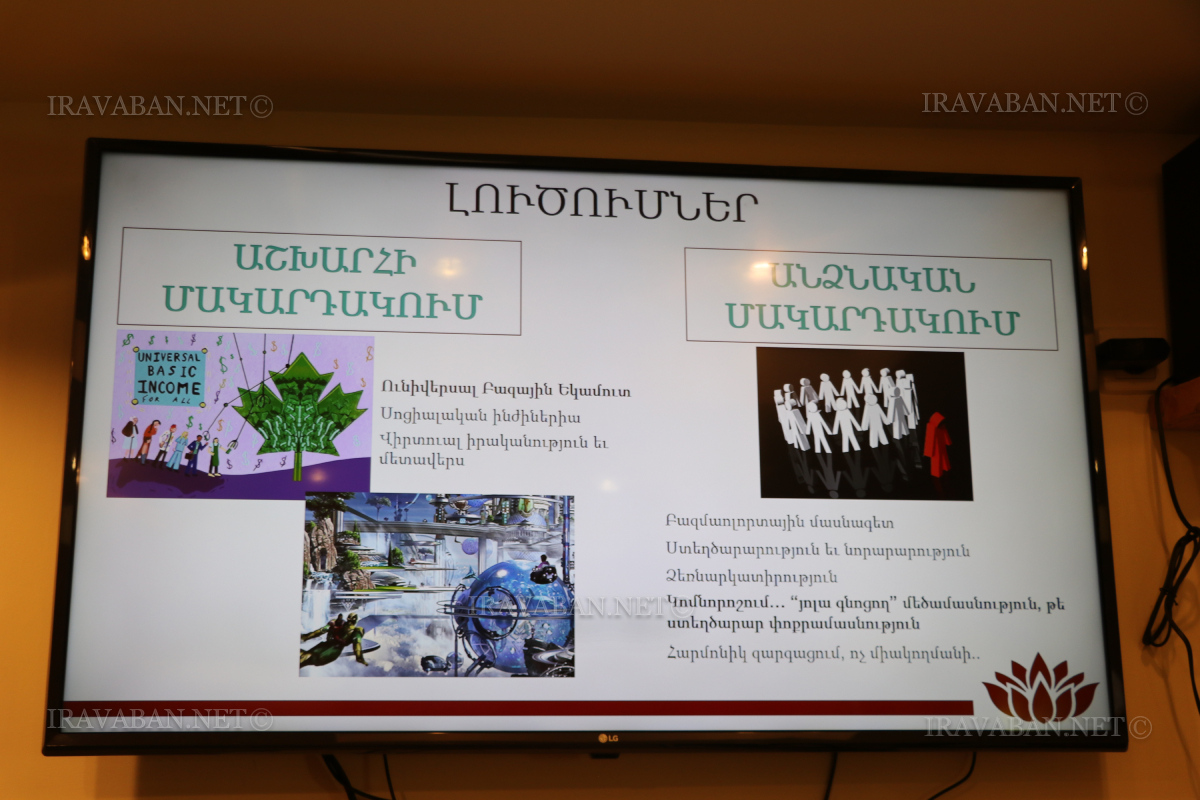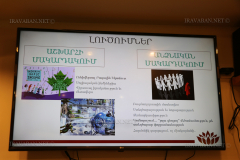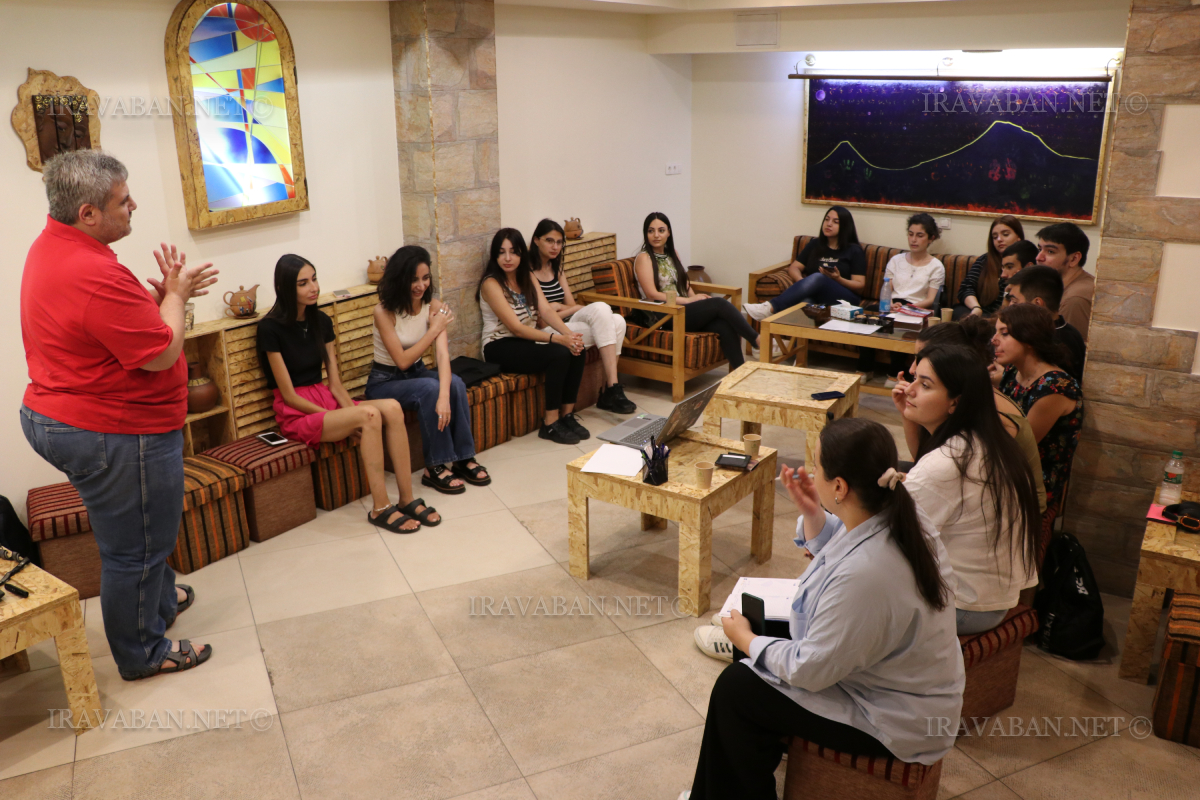
On 28 July, students of 9th stream of the Anti-Corruption School for Young Leaders, the 1st anti-corruption professional educational initiative operating in the Republic of Armenia, within the framework of the master classes and practical skills development phase of the school met with Education Expert Areg Tadevosyan, President of the “Intercultural Research and Development” NGO
He taught the students how to learn. The speaker presented the requirements of the new era for a person and a specialist, the foundations of multiple intelligences and development opportunities, as well as spoke on the topics of “Learning how to learn” meta-ability and self-development.
He also spoke about VUCA. This acronym was first used in 1987 to describe or reflect the volatility, uncertainty, complexity, and ambiguity of common conditions and situations.
V = Volatility. The nature and movement of change, the nature and speed of the forces and catalysts of change.
U = Uncertainty. The lack of prediction, the prospect of surprise, the sense of awareness of issues and events and their perception.
C = Complexity. The multiplicity of forces, the confusion of issues, the lack of chain of cause and effect, and the confusion that surrounds the organization.
A = Ambiguity. The ambiguity of reality, the potential for misinterpretation, the mixed meaning of terms. cause-and-effect confusion.
Areg Tadevosyan presented the new model of multiple intelligence to the students as well, and talked about its components and importance.
“Our brain is lazy. When it has the opportunity not to do something, it will not do it. Raising a question, formulating a problem are important for our development. All-round development is important for a person,” the speaker noted.
According to Areg Tadevosyan, it is wrong to assume that there is only one type of intelligence. American psychologist Howard Gardner, author of the concept of “multiple intelligence”, distinguishes 8 types of intelligence.
They are: cognitive, intrapersonal, spiritual, national, social, technological, bodily and cultural types.
The speaker also quoted the words of the Armenian intellectual, mystic, and spiritual teacher Georgi Gurdjieff: “Man has a complex organization. It consists of four parts that can be connected, not connected or poorly connected. The chariot is connected to the horse by the axles, the horses are connected to the charioteer by the reins, the charioteer is connected to the owner of the chariot by the owner’s horse. But the charioteer must understand the master’s words. He must know how to drive the carriage, and the horse must obey the coachman’s reins.”
The participants of the school asked Areg Tadevosyan a number of questions and expressed hope that the lectures on such topics will continue in the future.
Notably, the training in the Anti-Corruption School for Young Leaders will be organized in the following phases:
- ONLINE TRAINING PHASE, during which the students will pass a basic anti-corruption course consisting of 25 topics through the school’s online anti-corruption training platform. Those students who have completed all the knowledge test questionnaires and received the appropriate points for completing the online training will be considered completed the online training phase.
- MASTER CLASS AND PRACTICAL SKILLS DEVELOPMENT PHASE, during which students who have successfully completed the advanced stage of school will be divided into groups and each group will conduct a study, monitoring or investigation on one of the in-depth anti-corruption topics. During this phase, the work will be organized in the form of group meetings, discussions, and meetings with representatives of the sectors and other relevant bodies and organizations. Attendees will learn a range of innovative tools and gain related skills. At this stage, mentoring for groups is planned.
- PUBLIC AWARENESS PHASE, during which students who have successfully completed the practical skills development phase of the school will have the opportunity to disseminate their anti-corruption knowledge among young people through public awareness seminars.
- ADVANCED TRAINING PHASE, during which the best 15-20 participants who have achieved high results in the online training phase of the school, successfully completed the in-depth interview phase and are selected, will participate in the outreach (out of Yerevan) in-depth anti-corruption training. The in-depth training phase of the school will consist of the modules: “Anti-Corruption Advanced Training” and “Pillars of National Identity”.
- FINAL PHASE, during which the students, who have successfully completed the practical skills development and public awareness stages of the school, will present their research and public awareness results to the reputable jury and the public.
Students who have passed and successfully graduated from all five phases of the School will be awarded GRADUATION CERTIFICATES of Anti-Corruption School for Young Leaders.
“The Armenian Lawyers’ Association” NGO is organizing the Anti-Corruption School for Young Leaders in cooperation with the CSO Anti-Corruption Coalition of Armenia.
The information partner of the Anti-Corruption School for Young Leaders is Iravaban.net, independent professional news website.

